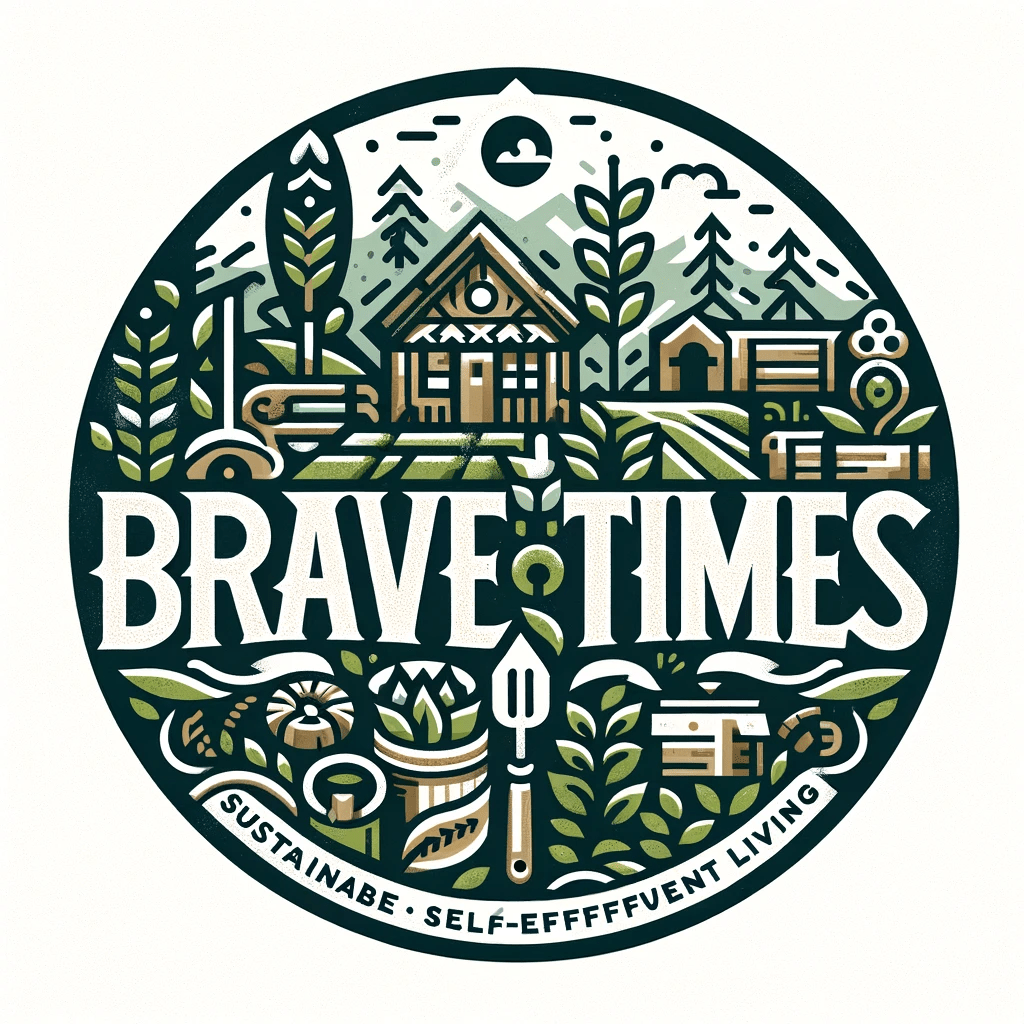Have you ever pondered over your egg waste? We throw them away, into the trash or compost, but what if I told you that there’s more to these shells? They are a goldmine of a nutrient our bodies, our pets, and even our garden crave – Calcium. Yes, the humble eggshell can be transformed into a calcium-rich supplement.
Eggshells are primarily made up of calcium carbonate, which is also the main component in our bones, teeth, and nails. They are also loaded with nutritious compounds, including collagen protein, magnesium, selenium, and strontium that are beneficial for our bones and joints.
Numerous studies have shown that the calcium from eggshells is highly bioavailable, with an absorption rate of up to 64% compared to commercial calcium supplements.
Humans require a hefty amount of calcium every day to remain healthy—around 1000-1500mg. But if we’re not getting enough from our diet, the body starts pulling it from our teeth and bones, leading to health issues like tooth decay or osteoporosis.
Our pets and livestock require calcium too. Sadly, commercial feeds often fall short of providing the necessary amount of calcium required for healthy teeth, shiny coats, and strong eggshells.
Interestingly, the calcium in our food (and our pets’ food) originates from the soil. It’s one of the earth’s most abundant minerals but can become depleted over time in our gardens and farm fields, so our gardens sometimes need a calcium boost.
But how do we utilize these overlooked shells? You can either purchase ready-made eggshell calcium online, or you can make it yourself. Here’s how:
You’ll need a dozen empty eggshells, preferably from organically raised pasture hens, and 6 cups of filtered water. Rinse any remaining egg white out of your eggshells, leaving the nutritious membrane. When you’ve gathered enough, boil them for 10 minutes to eliminate any harmful pathogens. Drain and dry the eggshells overnight. The next morning, completely dry them in a 200-degree oven. Once dry, pulverize them into a fine powder using a coffee grinder. Store this in a tightly sealed jar.
One teaspoon of this homemade eggshell powder contains approximately 800-1,000mg of calcium. Divide this dose over three meals by stirring into water, smoothies or juice, or mix the powder into bread and baked goods, spaghetti, or breaded and fried meat.
You can sprinkle a bit of the powder over your pet’s food, beneficial for animals on raw diets to help balance excess phosphorus. Eggshell powder can also help chickens produce healthy eggs and prevent them from pecking at their own eggs, often a sign of calcium deficiency.
But it’s not just about us and our pets. Our gardens can benefit from this homemade calcium supplement too. Have your soil tested to assess your calcium levels and amend as indicated by the results. It can be a great early spring amendment to your garden soil, especially for preventing blossom end rot in tomatoes, peppers, and squash.
So, the next time you’re about to throw away those eggshells, remember that they hold a potential treasure of nutrients, ready to be tapped.


20 Responses
It feels reassuring who simply following the law of nature about recycling can bring multiplefold benefits to us, our pets and our plants. It paints the bigger picture regarding how organically the food chain operates.
I’m glad you found my story insightful. Yes, it’s indeed fascinating to see how intricately connected everything in nature is. By simply recycling our eggshells, we can help ourselves, our pets, and our plants in a very organic way. It’s all about understanding and utilizing the resources that nature has provided us with.
I am astounded by how much we don’t know of the things we often dismiss as waste. The level of bioavailable calcium in eggshells is sanity, especially for those suffering from calcium deficiency. I never thought I could use ‘waste’ to improve my pantry staples! Also, it’s quite intriguing how simple the processing method is, despite its sensitivity to manufacturing conditions.
I am thrilled by this. It is beautiful how nature ingeniously compartmentalizes important nutrients within the ordinary layers of an egg. The versatile way these nutrients can be used to supplement differently to sustain different forms of life; from humans, pets to plants is enlightening!
Upon reading this well-written piece, my perspective on eggshells has been drastically transformed. It brims with nuggets of profound insights, each drawing attention towards the neglected aspect of our anthropogenic wastes – eggshells, in this case. The author’s note on calcium as a pivotal element for our bones and other biological structures kindles great interest. I wasn’t aware that simple kitchen waste could benefit us, our pets, and even our gardens in a significant way. This revelation urges me to embrace a more sustainable approach to handling kitchen waste.
Thrifty, nutritious, and environmental – three valuable benefits rolled into one. I plan to try this simple but comprehensive approach with my garden this year. Let’s keep more of our waste out of landfills by finding clever uses like these for ‘trash’!
This information is nothing short of magic! This article helps us rediscover the charm and magnificence of Mother Nature. Can’t believe egg shells supply so much nutrition. Their use as calcium supplements and soil rejuvenators are an aspect yet unexplored by many, but not anymore. Thanks for sharing this valuable information.
A pitiful attempt at promoting DIY science. The post only talks about the benefits, leaves out potential negatives. For example, it fails to address potential risks due to variances in diet, digestive capabilities, and health qualities of different individuals. Overconsumption of calcium could potentially lead to kidney stones and other issues. Trusting your diet (or your pet’s diet) to random internet hacks appears egregiously unwise.
While the method may be rather time-consuming, the idea that we can sustainably produce our nutrients is remarkable in itself. Instead of tiresomely depending upon external resources for health supplements, being able to create our calcium stores in our kitchens is groundbreaking. The range of benefits extend from eradicating nutritional deficiency, to reducing waste and ensuring healthier, natural intake of vitamins for us, our pets and our plants as well.
Indeed, not only is the composition of eggshells highly suited to our nutritional needs, but importantly, the idea of recycling and reusing this organic waste rather than discarding them resonates beautifully with the concept of sustainability. The widespread adoption of such practices could greatly benefit not only our health but also that of our environment.
Absolutely agree! It’s amazing how we tend to overlook the value of “waste” materials. Eggshells are indeed a fantastic source of calcium and other nutrients, and it’s high time we started incorporating them into our dietary and gardening routines for a healthier lifestyle and a greener environment. Thanks for sharing this insightful perspective!
So, ‘eggs-tra’ordinary. Seeing as how we live in a world where nothing seems sacred anymore, I’m rather unsurprised we are now being encouraged to eat eggshells! Brilliant! I will add this to my long list of ‘resourceful’ ways to stretch out my groceries.
Indeed, it is quite staggering to know that what we perceive as ‘waste’ holds invaluable quantities of necessary nutrients. The concept that such simple kitchen scraps as eggshells could help fulfill our daily calcium requirements is certainly thought-provoking. Moreover, being a cheaper and more organic alternative to commercial calcium supplements, it is a certainly commercially-viable opportunity.
I completely agree. I think it’s fascinating how we overlook the potential of items we consider as ‘waste’. Not only does this practice promote sustainability, but it’s also economical and beneficial for our health. Your point about the commercial viability of this concept is spot-on. Perhaps, more awareness about this could lead to substantial change.
While this piece does shed light on an interesting life hack, it oversimplifies things to the point of transmitting false impressions. Calcium intake does indeed require attention, but relying solely on eggshells instead of considering a balanced diet rich in various foods and fortified products is questionable interpretation of health advice. And ordering readers to just boil and pulverize eggshells may have filtered out important details in the process of making it suitable or use.
Intriguing article! I had always thought eggshells were waste, but now, my perception has completely shifted. It is illuminating that the calcium from eggshells has an absorption rate up to 64%. That’s higher than commercial supplements! It underscores the value of returning to nature for our nutritional supplies over synthetic supplements. I appreciate this critical information about human and animal calcium deficiencies.
This is truly innovative yet grounded in nature. It illustrates that we are yet to discover fully what nature has to offer. I didn’t know that eggshells carry these many nutritious ingredients. It was fascinating to realize how we could seamlessly integrate these nourishments across a variety of potential mediums.
What struck me most was the remedy it presents not merely for people, but also for pets, plants and soil!! It casts a new light on how we view ‘waste’. This facilitates a discovery of leaning into sustainable lifestyles from a fresh perspective. It ingeniously repurposes ‘waste’ into something vital, which is a compelling and necessary path towards a better world.
I couldn’t agree more! I was also amazed by the multifaceted uses of eggshells. It just goes to show that nothing is truly ‘waste’. We need more of these innovative ideas to make our lifestyles more sustainable.
Oh, the miracle of eggshells as a calcium supplement! Simply fascinating, because clearly, surviving off of what modern agriculture barely qualifies as ‘food’ wasn’t quite enough of a grim challenge for the human spirit. Bless those kitchen magicians. I’m onto this like flies on rotten waste, if flippantly manipulated realities and clutter are anybody’s jam.